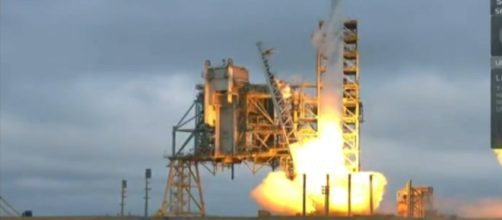In what appears to be a continuing streak of firsts, SpaceX has announced that the California-based company has set its eyes on sending two private SpaceX Space Tourists to the moon next year. If successful, this will mark the first in the history of space travel for two non-astronauts to reach the far side of the moon.
Passengers names remain a mystery
The passengers, whose identities the company has currently withheld from the public, has been quoted as having made ‘significant’ deposits for the moon mission. They will be the only passengers aboard the company’s Falcon 9 and Dragon Spacecraft in a space flight expected to last for a week.
The two SpaceX space tourists have been scheduled for training and briefings in the coming months.
It can be recalled that the last manned mission to go beyond Earth’s orbit was conducted way back in 1972 during the Apollo 17 space mission. Since then, no space mission has involved taking people to deep space travel.
What is SpaceX?
Space Exploration Technologies, most commonly known as SpaceX, is a private spaceflight company owned by tech billionaire and Tesla CEO Elon Musk. It was founded in May 2002 and has become the world’s first private commercial company to launch a transport vehicle to the International Space Station (ISS) in May 2012.
The company has been awarded contracts from NASA for the continuation of research and development of transporting cargo to the ISS.
It is also included in a development program to develop its capability in astronaut transport in future space missions.
Skepticism on the feasibility of sending SpaceX space tourists
Despite the recent excitement surrounding the planned historic flight to the moon, skeptics from NASA have been quick to point out that the reports may not be as good as they seem. Their view has been based on SpaceX’s track record where its Falcon 9 met two accidents in the last two years. Aside from this, these sources claim that the company has been experiencing technical difficulties in trying to get astronauts to the ISS. Add in the overly-ambitious time-frame of 2018 and the possible failure of the company to secure a launch license, and the whole project has the overall outlook of uncertainty.
SpaceX founder Elon Musk meanwhile has continued to be upbeat about the future of the company’s space program. As ambitious as they may appear in sending SpaceX space tourists next year, their emphasis has always been on achieving their goal of accelerating space exploration through the development of space mission capability.

